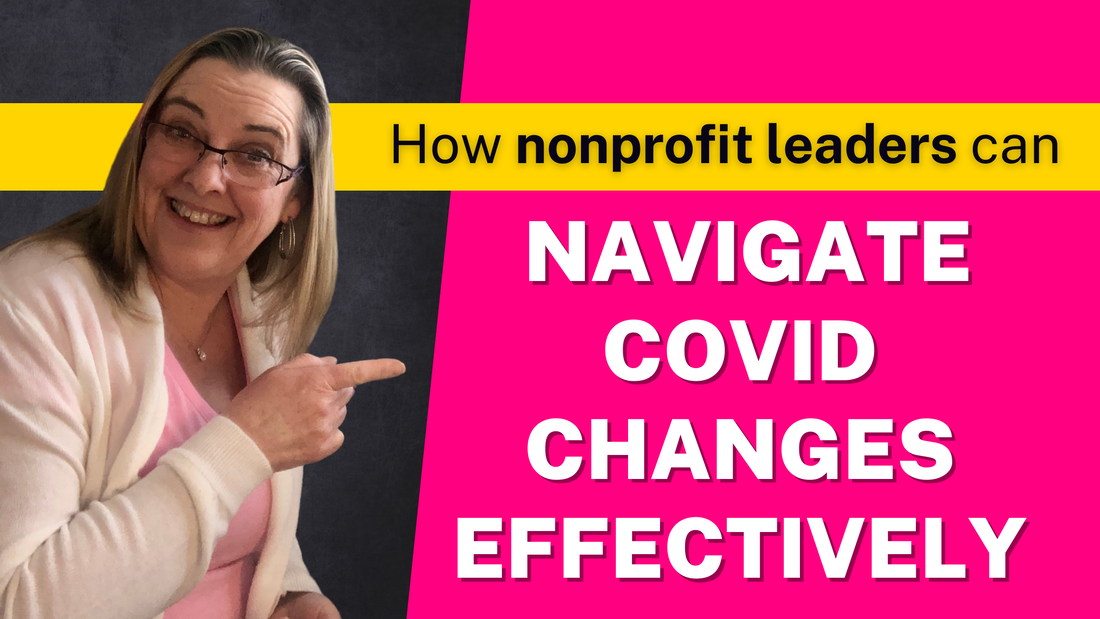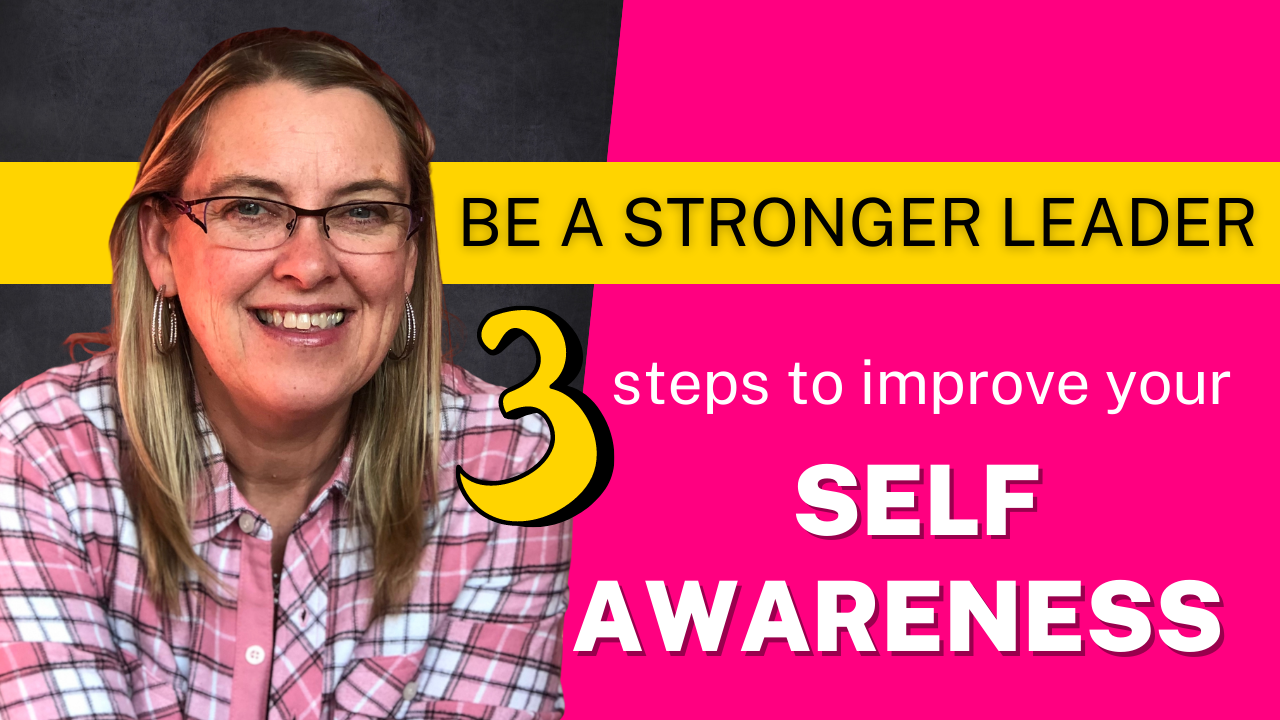|
As much as you'd like to get back to programming, training and the day-to-day running of your organization, most nonprofit leaders are dealing with some version of the following questions:
Whatsmore, those are just the big questions. As a nonprofit leader, there are so many decisions you need to make around Covid these days that I bet your head is spinning. No decision is a one-size-fits-all either, as each program, staff, and community has unique complexities and nuances. And, it's constantly changing! While you may think you are ahead of the game and have things under control for a moment, the game changes in a blink of an eye. New rules, new policies, and new expectations are handed out, and you are expected to follow suit quickly and without clear guidance or direction for your particular situation. If you aren't careful, it will negatively impact your team With the accompanying pressure to decide quickly, these changes and expectations can be overwhelming to a leader and challenging to a team. Not only are you stressed, but your team is feeling confused, frustrated and maybe even unsupported. This "perfect storm" leaves you in a precarious position if you're not careful. A stressed-out and overwhelmed leader, combined with a frustrated and disjointed team, is breeding grounds for a toxic work environment. What's the answer? So what's a leader to do? The short answer is to be very self-aware! As things change rapidly, you'll need to manage what's happening outside of you by working on what's happening inside you. A lack of self-awareness will get keep you stressed out big time Mind chatter, racing thoughts, and late-night worrying will keep you in the trap of feeling like things are spinning out of control. But, while it might seem like the world around you is spinning out of control, you'll never deal with the issues in a level-headed way if you don't rein in your thoughts and get control of your inner world. Self-awareness will help you manage the stress effectively Self-aware leaders can acknowledge what's happening inside and around them. They recognize the anxiety building, the tension headaches, and the inability to focus. But they don't stop there. A self-aware leader takes all of those thoughts and discerns what they want to do with them in the direction they want to go. Self-awareness allows you to put your racing thoughts into perspective They'll take those thoughts and rub them up against their values, ethics and morals, the type of leadership traits they are developing in themselves and the impact they want to have in their team and their communities. Then, by putting those thoughts in perspective, they can better choose if those thoughts are helping them or hindering them. And if necessary they'll choose again. An example of a more self-aware process First, we need to slow down and recognize what's happening inside and around us. That starts with pausing. Then we need to ponder. Pondering helps us unpack what's going on in our thinking minds. Consider this train of thought OMG, I can't lose my staff, and I will if we mandate vaccinations. And then, what will we do if we mandate the booster and then a fourth booster? People are starting to push back. Ugh, I don't know what to do! STEP # 1 - Unpack the thoughts 💬OMG, I can't lose my staff ✏️Can't - That is absolute, black-white thinking and perhaps not helping me ✏️What values are coming into play with this thought?
💬And then, what will we do if we mandate the booster and then a fourth booster? ✏️This is me being worried about something in the future. need to come back to mindfulness and work on what I can handle in the present moment. 💬People are starting to push back. ✏️I'm aware that I dislike conflict. I'll need to handle those tough conversations with courage. 💬Ugh, I don't know what to do! ✏️That thought leaves me feeling a lack of competence and confidence. STEP # 2 - Choose a new train of thoughts 💬 OMG, I want to find a way to retain my good staff. Things are changing quickly, and I can only deal with what's here now As my team members get frustrated and push back, I need to use every tool in my toolbox to support the team, maintain our working relationships and develop alignment going forward. I am figuring out what to do, step by step. Then, when I don't know, I'll be honest and work through what I need to learn and where I need to ask for help.
0 Comments
If you're going to make it as a nonprofit leader, you'll want to understand yourself and what makes you tick! If you don't, you'll stay stuck in survival mode, feeling overwhelmed and frustrated far more often than you need to be.
Self-awareness is when you develop a conscious knowledge of your own character, feelings, motives, and desires. It is being aware of what's going on inside of you, what drives your heart, mind and soul. Doing the work to become a more self-aware nonprofit leader is a critical component of navigating all that leadership throws at you. Self-awareness is important in leadership for the following 3 reasons: First, leaders make decisions and need to be self-aware to make good decisions. The job of a nonprofit leader is to take a team of people, help them work well together so that you can achieve a mission. Leadership invites people to come together to do the day-to-day work for a bigger purpose. To do that, though, a leader must make choices and decisions all day long. Leaders decide whom to hire and how to train, develop, and provide feedback to their people. In addition, a leader makes financial decisions, allocates resources, and interprets policy and procedures.
Each of those choices is an ethical, moral decision, or a value-based decision. Self-aware leaders know which ethics, values and morals are coming into play as they evaluate their choices. Critical thinking, slowing down to consider all factors involved, requires a leader to be self-aware. Second, leaders' decisions are affected by their beliefs, and self-awareness helps them understand and manage those beliefs. Our underlying beliefs and assumptions about what's going on are drivers of our decisions. When those underline beliefs and assumptions are unconscious, we tend to react and make choices that perhaps aren't as fully in alignment with our authentic self, the best needs of the organization, or the future outlook of our clients. When we become more self-aware of our beliefs and assumptions, we can question them, fact-check them, and determine if those beliefs are old patterns of thought based on old programming or help us lead with our strength of character. FOR EXAMPLE: Consider this thought: I have to get this report done today. I'll need to cancel my 1-1 meeting with my staff. This report is more important. Now consider what values are coming into play here?
Next, think about your character and reputation.
Perhaps you want to be a leader who leads with integrity, which means you walk your talk. So if you told your staff member that you were committing to regular 1-1 sessions with them and this is the 2nd time you reschedule, how does that align with what type of leader you want to be? You can see how being self-aware will help you make this decision. Third, leaders' emotions come from their beliefs and play a role in their decision-making. Self-aware leaders are emotionally intelligent leaders. Most of our days as nonprofit leaders are spent chasing fires, dealing with crises and running from meeting to meeting. As a result, we often struggle to get everything done without staying late or pulling out our laptops after supper. With this schedule and level of responsibility comes a vast range of emotions. One minute we are overwhelmed, the next minute worried, and at the same time annoyed. An email leaves us feeling judged. A look during the meeting causes our back to go up. The lack of response from a team member causes you to feel discouraged and cranky. When you feel cranky, judged or overwhelmed, those emotions impact your interactions, cloud your judgement and leave you feeling less than engaged in your job. When you lack self-awareness, you don't even realize how you feel and how that emotion impacts you. Whatsmore, you often are not in control of your feelings, leading to losing your composure. Self-awareness is a part of the leadership development process. While self-awareness is a part of the leadership development process, many leaders shy away from doing the inner work to understand how their inner world works.
But here's the thing: if you don't understand your ethics and morals and haven't identified your values, you're not consciously making those decisions. To become a more self-aware leader, you must create the space, have a plan, and do the work. 1 - Creating the space to become more self-aware Set aside a time set aside time each day to reflect. Start with five or 10 minutes. You can write in a journal or sit and be with your thoughts. Start with these questions.
2 - Create a plan for how you will become more self-aware Having a plan means you're clear on growing one aspect of your self-awareness, you know what aspect that is, and you know how you're going to do that. For example, you might be working on identifying your triggers. Your plan might be to note them down each day in a notebook. Another example might be identifying your emotions. Again, your plan may be to note them in a notebook, but you will also use the wheel of emotions to explore the granularity of your motions. 3 - Do the work to become more self-aware Ultimately this is the hardest part of creating increased self-awareness. Again we are busy, and this often brings up emotions. This means we need to create a safe space and time to do the work and commit to doing it even if it's challenging. Growth comes from struggle. Nature shows us that struggle when a seed opens and bursts through the ground, and babies are born. Struggle, challenge and feeling icky at times are all part of growth! I won't lie to you and say that this is always easy work. But it can be so liberating and freeing! This inner work to help you become more self-aware allows you to feel more in control, composed and capable. What will you do to become more self-aware? Are you committed to becoming a more self-aware leader? If so, what are you doing this year to ensure you are doing that? Again, it's essential to consciously work on yourself and have a deliberate plan. Remember, do the inner work! It's worth it! Lead your nonprofit with confidence, composure & your integrity intact |Learn from a coach who's been there too! |

Available on Amazon
Archives
May 2024
|
|
Leadership TRAINING for Nonprofit Leaders
Become a confident and competent nonprofit Leader: Join The Training Library membership Executive and Leadership COACHING Leadership Coaching for Nonprofit Executives, Leaders and ManagerCoaching |
PODCAST for Nonprofit Leaders
The Surviving to Thriving podcast: Strategies, systems and support to lead your nonprofit with confidence FREE RESOURCES to Grow your Leadership Skills Free Leadership Training Resources, Worksheets and Templates |
Become a CONFIDENT LEADER
|





 RSS Feed
RSS Feed
